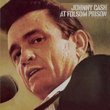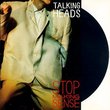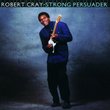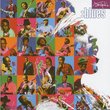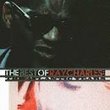| All Artists: Bob Marley Title: Rastaman Vibration Members Wishing: 2 Total Copies: 0 Label: Tuff Gong / Island Records Release Date: 5/31/1990 Album Type: Original recording reissued, Original recording remastered Genres: International Music, Pop Styles: Caribbean & Cuba, Jamaica, Reggae, Vocal Pop Number of Discs: 1 SwapaCD Credits: 1 Other Editions: Rastaman UPCs: 042284620529, 042284620512, 0600753092996, 643346030517 |
Search - Bob Marley :: Rastaman Vibration
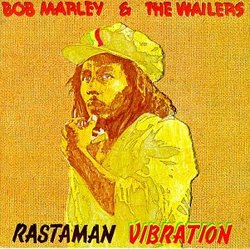 | Bob Marley Rastaman Vibration Genres: International Music, Pop
Limited Edition Japanese pressing comes housed in a miniature LP sleeve. Universal. 2008. * Please note these are issued on Universal EU barcodes but are in fact pressed in Japan and include an OBI and booklet. |
Larger Image |
CD DetailsSynopsis
Album Description Limited Edition Japanese pressing comes housed in a miniature LP sleeve. Universal. 2008. * Please note these are issued on Universal EU barcodes but are in fact pressed in Japan and include an OBI and booklet. Similar CDs
Similarly Requested CDs
|
CD ReviewsOne of the finest musical efforts ever Joel Snyder | Ann Arbor, MI USA | 02/10/2000 (5 out of 5 stars) "It seems demeaning to call one Bob album better than any other, because each contains such magic, but I would probably consider this Bob's finest work. It covers the entire spectrum. The political songs on the album dominate it and simply are the finest set anywhere. "Johnny Was," "crazy Baldheads," "Rat Race," and, of course, the most powerful political song ever, "War," are incredible. Otherwise, the beats that tear up this album are huge. From "Positive Vibration" to "Roots, rock, Reggae" to one of my personal bob favorites "night shift" i found myself putting this CD in basically every night. anyone who does not own thsi disc is missing out on quite a piece of work." Rastaman Vibration defines the strength and beauty of reggae Joel Snyder | 10/21/1999 (5 out of 5 stars) "This album is an unmissable addition to any collection of reggae albums. The songs flow together with a craftsmanship and elegance all Bob's own. The rasta ethos is littered throughout, emphasised particuarly in 'Crazy Baldheads', 'War' and 'Positive Vibration', but, as always with the Wailers, the music can be enjoyed by all. JUST TRY TO LISTEN TO THIS ALBUM WITHOUT SMILING ONCE!" Maybe not his best, but Marley was never less than excellent Joel Snyder | 05/14/1999 (4 out of 5 stars) "This album is still rather burdened the weak sound that totally wrecked the world-class songs on "Natty Dread," but the songs themselves are beautiful. "War," "Rat Race," "Roots Rock Reggae" and "Who the Cap Fit" are the most famous ones on here, but the rest of the tracks are solid tunes. Bob tries some new sounds, but doesn't really cut loose like he did on "Exodus" -- all in all, not his best, but still a very strong reggae album."
|

 Track Listings (10) - Disc #1
Track Listings (10) - Disc #1


